Business
Global advertising spend to top $1trn for first time this year
Published
8 months agoon
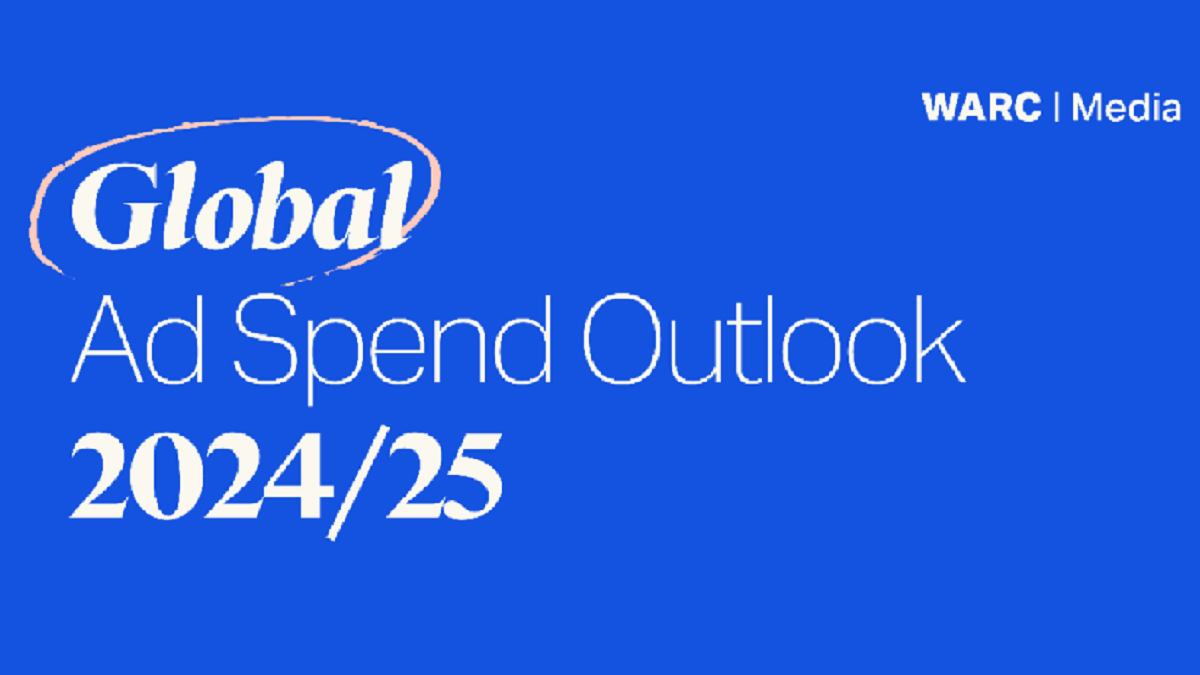
Projected 10.5% rise in global spend this year represents a 2.3 percentage point (pp) upgrade to WARC forecast, reflecting the uptake of AI-enabled media tools
North America to grow 8.6% this year to $348bn, APAC market worth $272bn but growth cools to just 2.0%, Europe forecast to rise 5.0% to $165bn, Latin America +6.2% to $32.1bn, Middle East largely unaffected by looming threat of regional conflict +4.2% to $12.6bn
US political spend set to reach $15.8bn this year; $3.6bn spent across social platforms with growth rapidly increasing since change of Democratic candidate
WARC Global Ad Spend Outlook 2024/25 – A Decade of Consolidation
22 August 2024 – A new study from WARC, the experts in marketing effectiveness, has found that global advertising spend is on course to grow 10.5% this year to a total of $1.07trn – the best performance in six years if the post-Covid recovery of 2021 (+27.9% year-on-year) is disregarded.
Ad spend growth is also anticipated next year (+7.2%) and in 2026 (+7.0%), culminating in a global ad market worth $1.23trn. Global ad investment has more than doubled over the last decade, and has grown 2.8x faster than global economic output since 2014. Just three companies – Meta, Amazon and Alphabet – account for more than 70% of this incremental spend. This trifecta is expected to attract 43.6% of all advertising spend this year, rising to a share over 46% by 2026.
WARC’s latest global projections are based on data aggregated from 100 markets. New for this edition, WARC is now leveraging an advanced neural network machine learning model which projects advertising investment patterns based on over two million data points spanning macroeconomic data, media owner revenue, marketing expenses from the world’s largest advertisers, media consumption trends and media cost inflation. It is believed to be one of the most comprehensive advertising market models available to the industry today.
The new projections show that ‘pureplay’ (i.e. online only) internet companies are set to record a 14.0% rise in advertising revenue this year, reaching a total of $735.7bn. In total, almost nine in every ten (88.5%) incremental dollars spent on advertising this year will go to online-only businesses, with half (52.9%) being paid to Alphabet, Amazon and Meta. Taken together, pureplay platforms are set to account for over 70% of all advertising spend worldwide next year.
Retail media (+21.3%), social media (+14.2%) and search (+12.1%) are set to lead digital growth in 2024, with these three sectors alone accounting for over 85% of online spend and almost three in every five (58.7%) incremental dollars spent on advertising worldwide this year. All are benefiting from the increased adoption of AI-driven ad services and growing appreciation of first party data.
James McDonald, Director of Data, Intelligence and Forecasting, WARC, and author of the research says: “The global ad market has doubled in size over the last decade, with advertising investment growing almost three times faster than economic output since 2014. Three companies – Alphabet, Amazon and Meta – have been the largest beneficiaries from this period of expansion, attracting seven in ten incremental ad dollars over the last ten years.
“With retail media expected to lead ad spend growth over the coming years, and with new, diverse players emerging in ad selling – from Uber to Chase – we are once again seeing the value of first party data in targeting the right person with the right message at the right time. Such data, combined with new AI enhancements, will constitute the fabric of the advertising industry for the next decade and beyond.”
Key findings outlined in WARC’s Global Ad Spend Outlook 2024/25 are:
MEDIA TRENDS: Global ad spend is forecast to rise 10.5% this year to a total of $1.07trn, and then 7.2% in 2025 and 7.0% in 2026; social, retail media and CTV to lead growth
At $241.8bn in 2024, social media is the largest single advertising channel measured in WARC’s study, having overtaken search (excl. retail media) for the first time last year. It accounts for 22.6% of all global ad spend this year and is forecast to rise to a share of 23.6% by the end of 2026.
Within social, Meta is the largest individual player, commanding 62.6% of the market this year. Its share is being eroded however, most notably by Douyin and TikTok owner Bytedance, which now draws a fifth (20.1%) of all social spend, up from a share of just 9.3% five years ago. TikTok is on course to account for over half of its parent-company’s advertising revenue for the first time next year with estimated ad billings over $28bn, though uncertainty remains around the platform’s future in the US – its largest market by far with 170m monthly active users.
The main social platforms have reported a fillip from new, AI-enabled services during the first half of 2024, a trend that is set to underpin the advertising industry at large over the coming years. Over half of all AI-enabled spend – defined as involving some form of recommendation algorithm, natural language processing or search optimisation – today occurs in the social media sector.
Search advertising (excluding retail media) accounts for 21.8% of global advertising spend, at a forecast total of $223.8bn this year. Its share has consistently grown since WARC began monitoring the sector in 2013, though it is set to plateau in 2026 as more purchase journeys begin in retail media environments and social commerce begins to realise its potential outside of Asia. Another potential headwind may be the rise of AI-driven search, and uncertainty around what the ad experience will look like for consumers more familiar with text-based search experiences.
Google accounts for more than four-fifths (84.0%) of the global search market, with its paid search revenue set to top $200bn for the first time next year. Google’s share rises to over 90% if China is excluded, a position of dominance which this month led a US judge to rule the company in breach of antitrust laws.
Retail media is expected to account for 14.3% of global ad spend this year – a total of $152.6bn – which is double the share recorded in 2019 before the pandemic contributed to an exceptional growth spurt. Indeed, retail media is expected to be the fastest-growing channel over at least the next three years.
Amazon is the dominant global player, with anticipated ad revenue (excluding Twitch and Prime Video) of $55.9bn equivalent to more than a third (36.6%) of all retail media spend and over two-thirds excluding China this year. While competition is heating up, such billings eclipse the near $4bn Walmart is due to net in 2024 and the $1bn ad business Uber is building, while Amazon is also due to have surpassed Alibaba by ad revenue for the first time this year.
CTV is on course to be worth $35.3bn to advertisers this year, roughly a quarter of the size of the linear TV market. Growth is rapid; CTV spend is expected to rise 19.6% and is set to account for two-thirds of all growth in the video (linear + CTV) market this year, and all growth in 2025. By 2026, CTV is projected to account for almost a quarter (23.9%) of all video ad spend, at $46.3bn.
Netflix is the largest streaming provider globally, with 277.6m subscribers worldwide in Q2 2024. However, its global advertising business is unlikely to grow too far beyond $1bn this year. YouTube’s ad income – which we do not yet classify as CTV – is expected to rise 14.3% to $36.0bn this year. Further, YouTube’s ad revenue is set to top $45bn globally by 2026, almost as much as the entirety of the global CTV industry at that time.
Legacy media, encompassing print publishing, broadcast radio, linear TV, cinema and out of home (OOH), now collectively account for a quarter (25.3%) of total advertising spend, having recorded a dip in share in each of the last 15 years.
Advertising spend on legacy media is expected to total $270.5bn this year, representing a 1.5% rise from 2023. Much of this growth can be attributed to US political spending; with this removed legacy media are, collectively, set to record a 0.5% decline in advertiser investment in 2024.
Linear TV spend is expected to grow by 1.9% this year, its best performance since 2014 if the post-Covid recovery year of 2021 (+12.7%) were excluded. The market is flat (+0.1%), however, excluding US political spend. Out of home (+7.2%) and cinema (+6.1%) will see some growth this year, though radio (-2.3%) is expected to record its third consecutive year of decline. Newsbrands (-3.3%) and magazine brands (-3.4%) are also due to see losses across print and online editions.
PRODUCT SECTOR TRENDS: Technology & Electronics (+13.2%), Alcoholic Drinks (+12.2%) and Clothing & Accessories (+11.1%) the fastest-growing consumer sectors next year. US political spend is expected to reach $15.8bn this year; over a fifth spent on social.
Advertising spend during the 2024 US presidential election is on course to top $15bn for the first time, with an expected total of $15.8bn up by over 40% on the previous cycle in 2020. Spend had been lagging the 2020 total earlier this year, but the surprise decision to change the Democratic candidate has led to an influx in spending in order to reposition the new ticket of Kamala Harris and Tim Walz. This shift is perhaps most pronounced online: political spending on social media is tracking 27.4% higher in Q3 2024 versus Q2 2024, with social spending by both main parties on course to reach $3.6bn this year.
Retail – the largest of the 19 categories monitored by WARC – is anticipated to record a 2.5% dip in global spend this year. Our definition of this sector is broad however, ranging from quick service retail (QSR) to grocery to department stores to online retailers, such as Temu. The latter is expected to continue investing heavily in advertising, particularly in Europe this year, but it is an exception – the longer tail of retailers are facing business pressures from soft consumer demand.
Technology & Electronics – the third-largest product sector monitored by WARC – is expected to post the fastest growth this year, with incremental spend of $17.0bn worldwide. The sector had recorded declines in advertising spend in both 2022 and 2023, as central banks raised interest rates sharply in an attempt to stymie inflation, exposing over-leveraged tech startups in particular.
Technology & Electronics (+13.2%), Alcoholic Drinks (+12.2%) and Clothing & Accessories (+11.1%) are forecast to lead ad spend growth among consumer-facing products in 2025, though Business & Industrial, the second-largest category, is expected to be the fastest-growing category overall next year (+18.2%), as budgets unlock during a period of comparatively favourable economic and trading conditions.
The Nicotine category is also growing rapidly, albeit from a low base; it is the smallest of the 19 product categories monitored by WARC at $13.0bn in 2024. Spend is set to grow 56% over the three years to 2026 – reaching a total of $17.2bn – driven almost entirely by vape products which skew heavily towards online advertising.
REGIONAL TRENDS: North America to grow 8.6% this year to $348bn, APAC growth cools to just 2.0% owing to stronger dollar, Europe is forecast to rise 5.0% to $164.9bn, while Middle East ad markets are largely unaffected by looming threat of regional conflict
North America is on track to be the fastest-growing region this year – inflated by the US presidential elections – with ad spend rising 8.6% to a total of $347.5bn. US ad spend is expected to grow 8.9% this year (+4.0% excluding political spend, more than double the 1.4% growth rate recorded in 2023) to a total of $330.8bn. A further rise, of 3.6%, is forecast next year, by when the US ad market should be worth over $342bn. The Canadian ad market is due to grow 7.5% to CAD23.3bn ($16.8bn) this year.
Latin America (+6.2% to $32.1bn in 2024) then follows, with its largest market, Brazil, forecast to record local currency growth of 9.6% this year to a total of BRL85.7bn ($14.8bn) – an acceleration from the 7.5% rise recorded last year. Our forecasts suggest that online advertising will account for over half (50.4%) of the Brazilian ad market for the first time this year.
APAC’s (+2.0% to $272.0bn this year) largest market – China – is projected to see ad market growth of 6.4% this year to RMB1.32trn ($181.2bn), an easing from the 9.3% rise recorded in 2023 as consumer demand remains soft and economic expansion lags stubbornly behind the target. Pureplay internet will account for over 86% of the Chinese ad market in 2024, though social media (+10.5%) and retail media (+8.2%) will expand at a slower rate this year than last.
When measured in local currency – so as to exclude the distorting effect of exchange rate fluctuations – we see that India will be the fastest growing key market this year, with advertiser spend rising 11.9% to INR1.08trn ($12.8bn).
Japan – the fourth-largest ad market in the world – is forecast to grow by 5.2% this year to JPY5.83trn ($36.9bn), though this equates to a 6.3% decline when measured in US dollars due to the Yen falling to a decade-long low. Australia’s ad market is expanding by 2.0%, a modest but welcome change of fortunes following flat (+0.3%) growth in 2023, while Indonesia is expected to achieve 7.8% growth this year.
Advertising spend across Europe is forecast to rise 5.0% this year to $164.9bn. The UK, the largest European market by spend, is expected to post an 8.0% rise to £38.5bn ($47.5bn) in 2024 per market data from the AA/WARC Expenditure Report. On the European mainland, France (+8.0%), Italy (+5.4%) and Germany (+4.0%) are all expected to see healthy gains this year, with the former in particular benefiting from increased advertising activity around the Paris Olympics and Paralympics in the third quarter.
Brand spend in the Middle East and Africa is currently on course to rise by 4.2% to $12.6bn this year, though fortunes are mixed. African spend is expected to be flat (+0.2%), following a 15.7% decline in 2023 and 1.4% dip in 2022. South Africa, the region’s largest market, is expected to see its ad market grow 6.0% this year but this translates to a 1.1% increase when measured in dollars owing to a weak Rand by historical measures. Ad spend in the Middle East is set to rise 8.1% this year but that is subject to change should conflict spread beyond Gaza to the wider region.
A complimentary article by WARC’s James McDonald, author of the report, is available to read here. WARC subscribers can read the article and access additional data here.
You may like
-
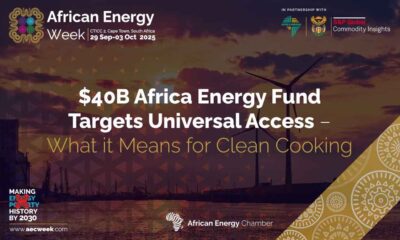

$40B Africa Energy Fund Targets Universal Access – What it Means for Clean Cooking
-


Afreximbank commissions first-of-its-kind African Trade Centre in Abuja, Nigeria – marking a new era for Intra-African trade
-
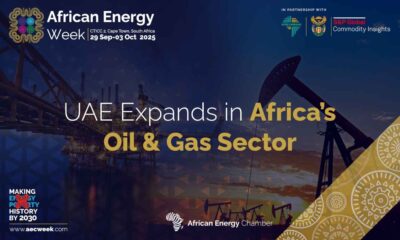

United Arab Emirates (UAE) Drives Strategic Push into Africa’s Oil & Gas Industry
-
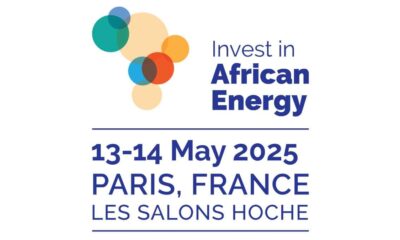

Invest in African Energy (IAE) 2025 to Host Panel on Advancing Africa’s Liquefied Natural Gas (LNG) Potential
-
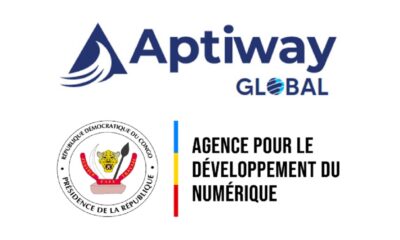

Aptiway Global Hosts High-Level Delegation from the Democratic Republic of Congo to Advance Digital Transformation Agenda
-
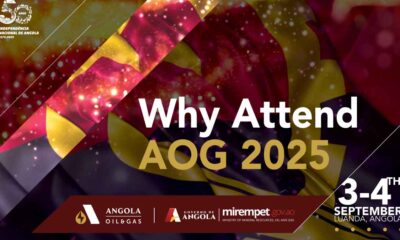

Unlock Business-to-Business (B2B) Networking Opportunities at Angola Oil & Gas 2025
Business
$40B Africa Energy Fund Targets Universal Access – What it Means for Clean Cooking
Published
3 days agoon
April 11, 2025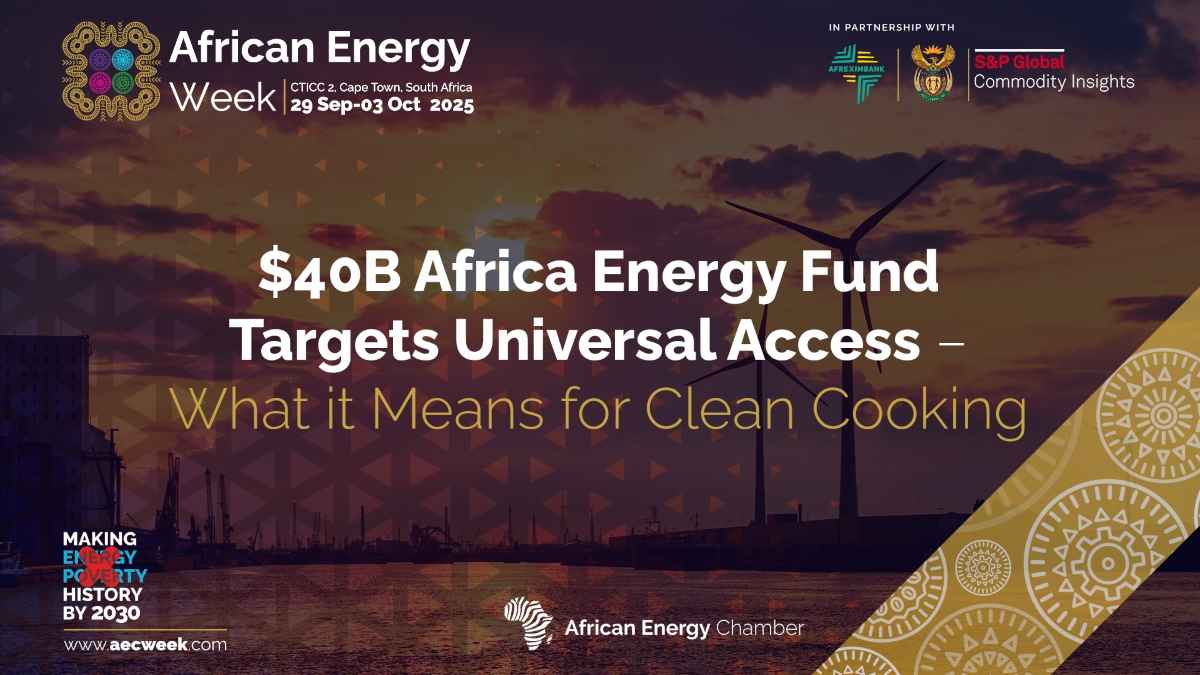
With the launch of a $40 billion fund to expand energy access, African Energy Week 2025: Invest in African Energies will serve as a key platform to drive investment in clean cooking solutions and sustainable energy strategies across the continent
Access to clean cooking solutions remains one of Africa’s most pressing energy challenges. Over 900 million people on the continent still rely on traditional biomass, such as wood and charcoal, for cooking. The health, environmental and economic consequences are severe – household air pollution from these fuels contributes to over 600,000 premature deaths annually, while deforestation and carbon emissions continue to rise. While electrification projects are a major focus of Africa’s energy transition, clean cooking remains an urgent issue that requires targeted investment and policy support.
The Fund is a step in the right direction and demonstrates global commitment to accelerating energy access and supporting Africa’s transition to cleaner, more sustainable energy solutions. The World Bank has pledged $22 billion to support the initiative, while the African Development Bank has committed $18.2 billion. Additional contributions include $2.65 billion from the Islamic Development Bank and $1 billion from the OPEC Fund, highlighting strong financial backing from major international institutions.
Several African countries have demonstrated strong commitments to expanding clean cooking access through national policies, targeted financing mechanisms and public-private partnerships. Kenya, seeking universal access by 2028, is advancing LPG expansion, electric cooking and bioethanol alternatives with support from private sector investment and international partnerships. By subsidizing LPG and investing in infrastructure, the country has significantly increased adoption rates. Neighboring Tanzania is integrating clean cooking solutions into its national electrification plan and broader energy transition strategy, supported by a dedicated National Clean Cooking Strategy. Meanwhile, Ghana has adopted a multi-pronged approach, enhancing the affordability of LPG and promoting efficient biomass stoves. The country is also raising public awareness of the health benefits of clean cooking, while encouraging local manufacturing of stoves and fuel alternatives.
The newly-launched energy fund not only works to expand electricity access, but also to catalyze economic opportunities by powering industries, businesses and households. Reliable energy is a fundamental enabler of economic growth, and investments in clean cooking align with broader energy access goals by reducing health costs, increasing productivity and improving gender equality. AEW: Invest in African Energies 2025 – the leading energy event for deal-making, policy discussions and industry networking – provides a crucial platform for stakeholders to explore investment opportunities in clean cooking and broader energy access initiatives.
Discussions will focus on mobilizing financing for clean cooking projects, including public-private partnerships and carbon credit mechanisms; strategies for integrating clean cooking into national electrification plans; and best practices from leading African countries and how their policies can be replicated across the continent. Discussions will also focus on scaling up investment in clean energy infrastructure, including off-grid electrification and innovative financing mechanisms for clean cooking technologies.
With the launch of the Africa Energy Fund and growing momentum around clean cooking investments, Africa stands at a pivotal moment in its energy transition. Achieving universal energy access requires a multi-faceted approach that includes large-scale electrification projects, off-grid solutions and immediate interventions in clean cooking. AEW 2025 provides an opportunity for governments, businesses and investors to align their strategies and secure funding to drive impact. The commitment to connecting 300 million Africans to cleaner energy is ambitious, but with the right policies and investments, it is within reach – and clean cooking solutions must be a central part of the conversation.
AEW: Invest in African Energies is the platform of choice for project operators, financiers, technology providers and government, and has emerged as the official place to sign deals in African energy. Visit www.AECWeek.com for more information about this exciting event.
Distributed by APO Group on behalf of African Energy Chamber
Business
Afreximbank commissions first-of-its-kind African Trade Centre in Abuja, Nigeria – marking a new era for Intra-African trade
Published
3 days agoon
April 11, 2025
With the opening of the Abuja AATC, Afreximbank continues its mission to promote intra-African trade and investment opportunities, laying the groundwork for a more prosperous and integrated African economy
During the grand commissioning ceremony, speakers, including Hon. Dr. George Akume, Secretary to the Government of Federation, Nigeria representing H. E. Bola Ahmed Tinubu GCFR, President and Commander-in-Chief of the Armed Forces, The Federal Republic of Nigeria, highlighted the AATC’s strategic importance, its pivotal role in shaping Africa’s economic future and the significant impact it is poised to make on Africa’s trade and investment landscape.
Speaking at the Ceremony, Dr. Akume stated, “Afreximbank African Trade Centre (AATC) is a landmark project that embodies our shared commitment to advancing Intra-African Trade, fostering economic integration and unlocking a vast potential of our continent. This occasion is a realisation of a bold vision for Africa’s economic future. AATC stands as a testament to the power of collaboration, resilience and forward-thinking leadership. It is more than a physical structure; it is the beginning of innovation, a hub for entrepreneurship and a catalyst for sustainable development.
He added, “This centre will serve as a critical platform for trade facilitation, capacity building and investment promotion – key pillars of Africa’s economic transformation. Afreximbank’s role in shaping Africa’s trade landscape cannot be overstated because the institution has consistently demonstrated its commitment to breaking down barriers, bridging financing gaps and empowering African businesses to be competitive. All these have been accomplished through flagship projects such as the AfCFTA adjustment fund that is managed by Afreximbank’s subsidiary, Fund for Export Development in Africa (FEDA), PAPSS and other Trade Finance Programmes. The AATC located in Abuja represents yet another milestone in this journey and this aligns perfectly with Nigeria’s strategic priorities under the Federal Government’s eight-point agenda, particularly in the areas of job creation, economic diversification, and regional integration. As we commission this remarkable edifice today, let us renew our resolve to be the stronger, more interconnected and prosperous Africa.”
Prof. Benedict Oramah, President and Chairman of the Board of Directors of Afreximbank, echoed this sentiment, remarking, “The Abuja AATC is the first of several AATCs being developed across Africa and the Caribbean. Some would be Afreximbank owned while others would be supported through a franchise-scheme. With these, we expect to create a sizeable network of AATCs that will act as the lighthouses to guide the interconnections and flow of trade and investments within continental Africa and between Africa and Caribbean regions. This AATC Abuja has been a 41-month journey, one built on hope and determination. Like the other AATCs, the Abuja AATC would serve a multi-purpose goal; it will serve as a platform for fostering deeper regional and continental integration and house Afreximbank’s permanent regional office, bringing a three-decade-old aspiration to fruition. This AATC will also offer a technology incubation hub, an SME incubation facility, a Digital Africa Trade Gateway, a conference and exhibition facility and a business hotel.”
Prof. Orama thanked the Federal Government of Nigeria for its support noting that the relationship between the Bank and Nigeria has been truly mutually beneficial and most cordial. “Over the last three decades, successive governments have accorded unflinching support to Afreximbank, responding most positively to capital calls, creating a congenial environment for its smooth operations while providing the Bank significant domestic policy support that helped to execute many of the development programmes in Nigeria.” He said.
This centre will serve as a critical platform for trade facilitation, capacity building and investment promotion – key pillars of Africa’s economic transformation
With the opening of the Abuja AATC, Afreximbank continues its mission to promote intra-African trade and investment opportunities, laying the groundwork for a more prosperous and integrated African economy.
Over 500 distinguished guests attended the commissioning ceremony, notably, Hon. William F. Duguid, J.P. Senior Minister, Prime Minister’s Office, Republic of Barbados, Hon. Sylvester Grisby, Minister of State for Presidential Affairs, Liberia, Hon. Adebayo Olawale Edun, Minister of Finance and Coordinating Minister of the Economy, Nigeria and his counterpart, Hon. Dr. Jumoke Oduwole MFR, Minister of Trade and Investment, Federal Ministry of Trade and Investment, Nigeria as well as Nigeria’s former Vice President Hon. Namadi Sambo. Hon. Bockaire Kalokoh, Deputy Minister of Finance of Sierra Leone and Hon. Sheilla Chikomo, Deputy Minister Foreign Affairs and International Trade, Zimbabwe represented their respective countries. The event was also well attended by business leaders led by billionaire entrepreneur Mr. Aliko Dangote, Founder and Chief Executive of the Dangote Group, Mr Tony Elumelu, Chairman of Transcorp Group, policymakers, pan-African CEOs, and entrepreneurs.
Their presence showcased a shared vision and determination to enhance trade across Africa, as they pledged to work together to leverage the AATC for the continent’s economic transformation.
The Abuja AATC comprises two interconnected nine-storey towers. One tower features world-class commercial A-grade office spaces, a trade and exhibition centre, a conference centre, a technology and SME incubator, a Digital Trade Gateway and a trade information services hub. The adjoining tower boasts a 148-room business hotel, seminar and meeting rooms, a wellness centre, a restaurant and other ancillary facilities. These features are designed to provide a comprehensive ecosystem for trade and business activities, catering to the diverse needs of African businesses. It will also host office spaces for local and international financial institutions and policy organisations, ensuring a complete support system for trade and business activities.
The AATC building is expected to achieve gold – and potentially platinum – Leadership in Energy and Environmental Design (LEED) certification by the United States Green Building Council (USGBC), a globally recognised standard for sustainable building design and construction. This certification will make the Abuja AATC one of the few certified buildings in Nigeria and West Africa, underscoring its commitment to environmental sustainability.
The global architect Messrs SVA International developed a multifaceted global design, drawing inspiration from the concept of a bazaar, which reflects the vibrant feature of daily life in many African cities. Construction of the USD120 million project commenced in November 2021 on a prime piece of land measuring 5,856 square meters and achieved completion in 41 months.
The Abuja Afreximbank African Trade Centre (Abuja AATC) is the first of seven planned AATCs across Africa, including Kampala, Uganda, Harare, Zimbabwe, Cairo, Egypt, Yaoundé, Cameroon, Tunis, Tunisia, and Kigali, Rwanda. In addition, Afreximbank recently broke ground in Bridgetown, Barbados, to construct the first AATC outside of Africa. Through franchising and licensing arrangements, the Bank intends to partner with relevant institutions and economic development organizations to establish non-Bank owned ATCs in the rest of Global Africa. These AATCs will serve to link buyers, sellers, suppliers, service providers, enterprises, governments, chambers of commerce, financial institutions, economic development organisations and the general African and global trade and investment community.
Distributed by APO Group on behalf of Afreximbank.
Business
United Arab Emirates (UAE) Drives Strategic Push into Africa’s Oil & Gas Industry
Published
3 days agoon
April 11, 2025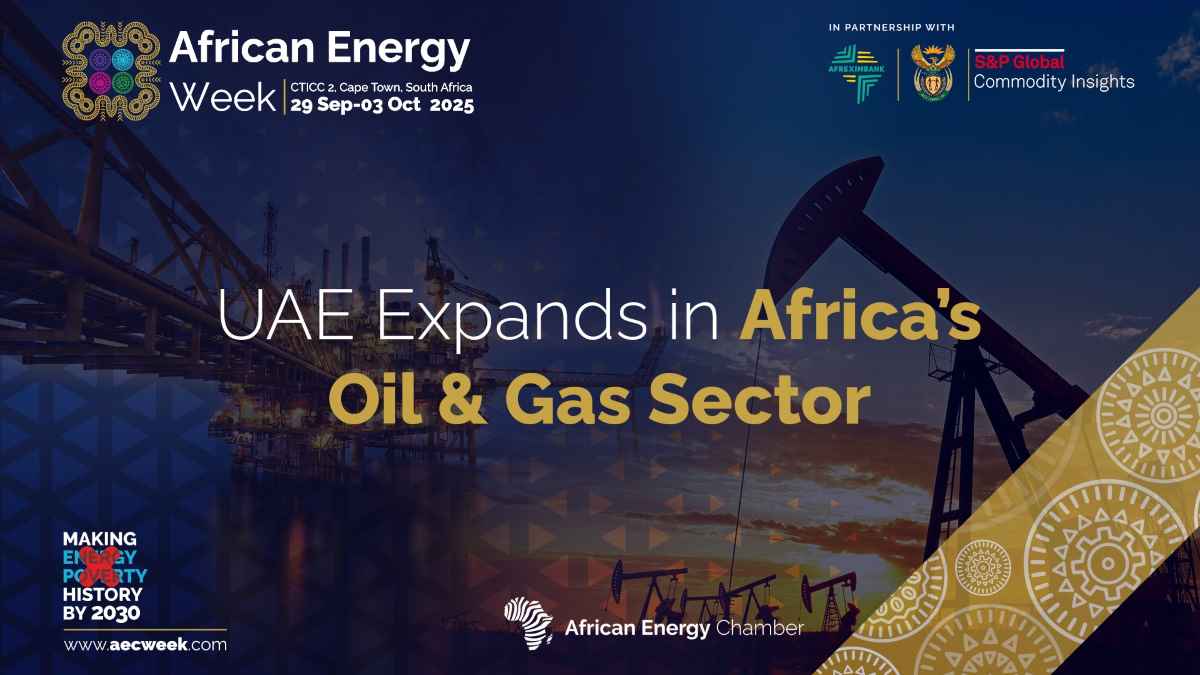
The UAE’s recent investments in Mozambique and Egypt highlight its expanding role in Africa’s energy sector, positioning it as the continent’s largest investor and a key partner in driving future growth
XRG Expands into Mozambique, Egypt
XRG’s acquisition of a 10% interest in the Area 4 concession in Mozambique’s offshore Rovuma Basin signifies more than just an expansion for the company – it reflects a broader geopolitical and economic vision that aligns with the UAE’s strategic interests. The basin is one of the world’s most significant natural gas reserves, with the potential to shape global LNG markets in the coming decades, driven by integrated gas developments with a production capacity exceeding 25 MTPA. The acquisition includes stakes in the operational Coral South FLNG and the planned Coral North FLNG and Rovuma LNG projects. XRG’s decision to invest in the region underscores its understanding of the growing demand for energy resources and the importance of securing diverse sources to ensure energy security.
In December 2024, XRG partnered with bp to establish a new regional gas platform and joint venture, Arcius Energy, focused on the development of gas assets in Egypt. The company aims to build a world-scale integrated gas and chemicals portfolio to meet rising global demand, leveraging Africa’s gas-rich hotspots to achieve this. Through these investments, the UAE is positioning itself as a leading partner in Africa’s energy future, which will likely continue to strengthen its economic and diplomatic ties with the continent.
UAE Becomes Africa’s Largest Investor
The UAE’s push into Africa’s oil and gas sector is part of a broader trend that has seen it emerge as Africa’s largest investor, surpassing even China. As reported by the Middle East Monitor, the UAE has overtaken China as the continent’s biggest source of foreign direct investment, with investments from Emirati companies totaling $110 billion between 2019 and 2023. This shift marks a significant milestone in the UAE’s strategy to diversify its investment portfolio and expand its influence across Africa, a continent rich in untapped potential and actively seeking foreign capital to drive its growth and development.
With investments spanning key sectors like infrastructure, energy and technology, the UAE has strategically positioned itself as an economic partner of choice for African nations. These investments include green hydrogen projects in Mauritania; Masdar’s $2-billion commitment to renewable energy in Africa through 2030; and the expansion of major players like Dubai’s DP World – which operates six African ports – and Abu Dhabi Ports, which has extended its presence into Guinea, Egypt and Angola. The UAE’s growing investment in Africa’s oil and gas industry aligns with the country’s broader goals of securing reliable energy supplies, diversifying its own energy portfolio and fostering long-term economic partnerships with African nations.
AEW 2025: A Platform for Gulf Investors
The UAE’s accelerated investments in Africa’s energy sector will take center stage at the upcoming African Energy Week (AEW): Invest in African Energies 2025 in Cape Town. The conference will provide a platform for Emirati and Gulf investors to engage with key stakeholders, discuss strategies for expanding in Africa and explore new opportunities within the continent’s rapidly evolving energy sector. With a focus on oil, gas and clean energy, AEW 2025 will be a critical gathering for investors like XRG to showcase their projects, forge partnerships and deepen their involvement in Africa’s energy development.
AEW 2025 will also serve as a venue for African energy leaders to discuss the vital role of private investment in unlocking the continent’s energy potential. As a leading investor, the UAE’s growing influence in Africa’s oil and gas sector will be highlighted at the event, reinforcing its position as a key partner in driving investment, innovation and collaboration.
Distributed by APO Group on behalf of African Energy Chamber
Trending
-

 Business3 days ago
Business3 days agoInvest in African Energy (IAE) 2025 to Host Panel on Advancing Africa’s Liquefied Natural Gas (LNG) Potential
-
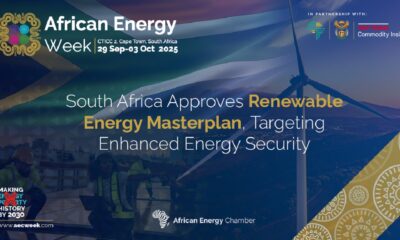
 Business5 days ago
Business5 days agoSouth Africa Approves Renewable Energy Masterplan, Targeting Enhanced Energy Security
-

 Business4 days ago
Business4 days agoNot Just a Sporting Event, but Also a Technological Test: Insights into the World’s First Human-Robot Co-Run Marathon
-

 Business5 days ago
Business5 days agoGhana’s Minister of Lands and Natural Resources to Speak at Mining in Motion Conference
-

 Business3 days ago
Business3 days agoWorld Football Summit Rabat at University Mohammed VI Polytechnic (UM6P) Concludes with Commitment to African Football Development and Global Collaboration
-
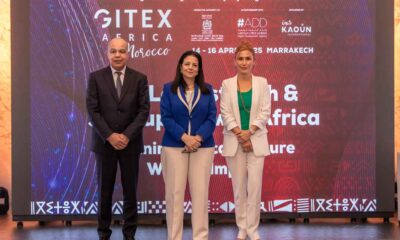
 Business3 days ago
Business3 days agoMorocco sets the stage for Africa’s digital future ahead of continental launchpad event for innovation, Artificial Intelligence (AI) and digital leadership in Marrakech
-

 Business3 days ago
Business3 days agoNornickel Presents Palladium Technology Development Strategy for the Platinum Group Metals (PGM) Industry in South Africa
-

 Business3 days ago
Business3 days agoAfreximbank commissions first-of-its-kind African Trade Centre in Abuja, Nigeria – marking a new era for Intra-African trade
